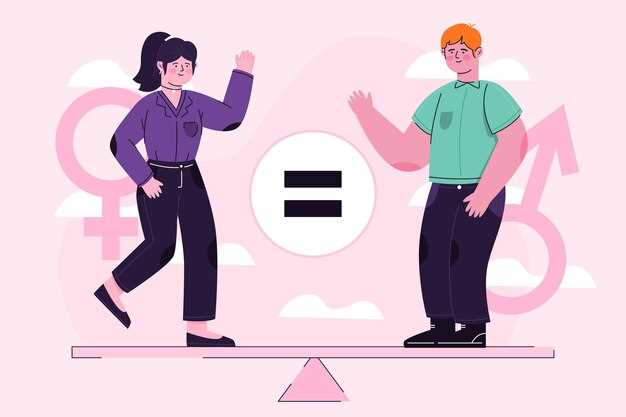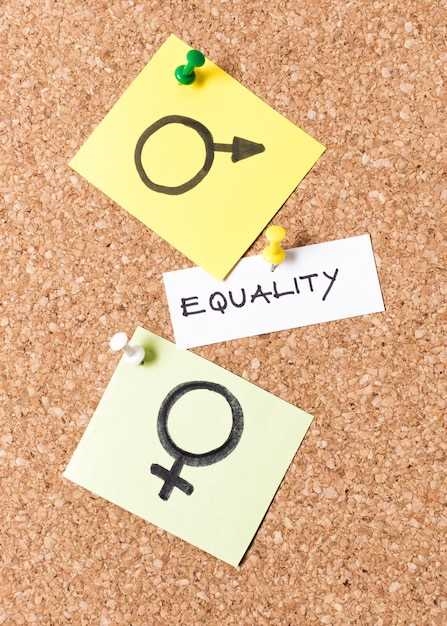
In today’s society, the issue of wage disparity has become a pressing concern that demands immediate attention. The persistent gap in earnings between individuals performing the same job roles has raised questions about the fairness and equality of our workforce. This article delves into the multifaceted nature of the gender pay gap, exploring its causes, consequences, and potential solutions.
When examining the gender pay gap, it is crucial to acknowledge the underlying factors that contribute to this pervasive issue. Societal norms and stereotypes have long perpetuated the notion that certain professions are better suited for one gender over another. This ingrained bias has resulted in a systemic undervaluation of women’s work, leading to lower wages and limited career advancement opportunities.
Furthermore, the gender pay gap is not solely a result of overt discrimination. Subtle biases and unconscious prejudices also play a significant role in perpetuating wage disparities. These biases can manifest in various forms, such as the undervaluation of women’s skills and qualifications, or the expectation that women will prioritize family responsibilities over their careers.
Addressing the gender pay gap requires a comprehensive approach that encompasses both policy changes and cultural shifts. Legislation aimed at promoting pay transparency and accountability can help shed light on wage disparities and encourage employers to rectify any unjust discrepancies. Additionally, fostering a work environment that values diversity and inclusion is crucial in challenging and dismantling the stereotypes and biases that perpetuate the gender pay gap.
Understanding the Gender Pay Gap: Causes and Consequences

In this section, we will delve into the factors that contribute to the disparity in wages between genders and explore the implications of this inequality. By examining the underlying causes and the far-reaching consequences, we can gain a deeper understanding of the gender pay gap and its impact on individuals and society as a whole.
Root Causes of the Gender Pay Gap
Various factors contribute to the gender pay gap, extending beyond simple discrimination. One significant cause is occupational segregation, where women tend to be concentrated in lower-paying industries and professions. This segregation is influenced by societal expectations, educational choices, and limited access to opportunities for career advancement.
Another factor is the undervaluation of work traditionally performed by women. Jobs that are predominantly female-dominated, such as caregiving and service roles, are often undervalued and receive lower compensation compared to male-dominated fields with similar skill requirements. This devaluation perpetuates the gender pay gap and reinforces gender stereotypes.
Consequences of the Gender Pay Gap
The gender pay gap has far-reaching consequences for individuals, families, and society. On an individual level, women’s lower earnings limit their financial independence and hinder their ability to accumulate wealth and invest in their future. This can lead to higher rates of poverty and financial insecurity among women, particularly in their later years.
Furthermore, the gender pay gap has implications for families and households. Lower wages for women can result in reduced household income, affecting the overall standard of living and potentially leading to increased economic stress. It can also perpetuate gender inequalities within relationships, as traditional gender roles and expectations may be reinforced when one partner earns significantly less than the other.
Societal consequences of the gender pay gap include perpetuating gender inequalities and limiting economic growth. When women are paid less than their male counterparts for equal work, it reinforces the notion that women’s contributions are less valuable. This not only hinders gender equality but also restricts the potential for economic development, as talent and skills are underutilized.
In conclusion, understanding the causes and consequences of the gender pay gap is crucial in addressing this issue. By recognizing the root causes and the wide-ranging effects, we can work towards creating a more equitable society where equal pay for equal work is a reality.
The Role of Legislation in Closing the Gender Pay Gap
Legislation plays a crucial role in addressing the disparity in wages between genders and working towards closing the gender pay gap. By enacting laws and regulations, governments can establish a framework that promotes fairness and equality in the workplace. These legal measures aim to ensure that individuals are compensated fairly for their work, regardless of their gender.
Creating a Level Playing Field
One of the primary objectives of legislation in closing the gender pay gap is to create a level playing field for all employees. By implementing laws that prohibit gender-based wage discrimination, governments can ensure that individuals are paid based on their skills, qualifications, and experience rather than their gender. This helps to eliminate biases and prejudices that may exist in the workplace, fostering a more inclusive and equitable environment.
Transparency and Accountability
Legislation also plays a crucial role in promoting transparency and accountability in pay practices. By requiring companies to disclose information about their wage structures and pay gaps, governments can hold employers accountable for any gender-based disparities. This transparency not only helps to identify and address existing pay gaps but also encourages companies to proactively work towards closing them. Additionally, legislation can establish mechanisms for individuals to report pay discrimination and seek legal remedies, ensuring that there are consequences for employers who engage in discriminatory practices.
In conclusion, legislation serves as a powerful tool in closing the gender pay gap by creating a fair and equitable work environment. Through the establishment of laws and regulations, governments can promote transparency, accountability, and equal opportunities for all individuals, regardless of their gender. By addressing the underlying systemic issues and biases, legislation plays a crucial role in driving positive change and working towards a more equal society.
Breaking Stereotypes: Encouraging Women to Pursue Lucrative Professions
In today’s society, it is crucial to challenge traditional gender roles and encourage women to explore high-paying careers that have historically been dominated by men. By breaking stereotypes and promoting gender equality in the workforce, we can create a more inclusive and prosperous society for all.
Overcoming Preconceived Notions
One of the main barriers that women face when considering high-paying careers is the prevalence of preconceived notions and stereotypes. Society often associates certain professions, such as engineering or finance, with masculinity, while relegating women to traditionally female-dominated fields. It is essential to challenge these stereotypes and highlight the capabilities and potential of women in all career paths.
Providing Equal Opportunities
Another crucial aspect of encouraging women to pursue high-paying careers is ensuring equal opportunities for education and professional development. By providing access to quality education, mentorship programs, and networking opportunities, we can empower women to overcome any barriers they may face and excel in their chosen fields. Additionally, promoting workplace policies that support work-life balance and flexible schedules can help women thrive in demanding professions.
| Benefits of Gender Diversity in High-Paying Careers |
|---|
| 1. Enhanced innovation and creativity |
| 2. Improved decision-making processes |
| 3. Increased profitability and productivity |
| 4. Greater representation and inclusivity |
By encouraging women to pursue high-paying careers, we not only promote gender equality but also unlock the full potential of our society. Breaking stereotypes and providing equal opportunities will lead to a more diverse and prosperous workforce, benefiting individuals, businesses, and society as a whole.
Pay Transparency: A Key Tool in Achieving Pay Equity
Transparency in pay is an essential factor in achieving fair and equal compensation for all individuals in the workplace. By promoting openness and clarity regarding salary structures and remuneration policies, organizations can create an environment that fosters pay equity and eliminates gender-based pay disparities.
Creating Awareness and Accountability
One of the primary benefits of pay transparency is the creation of awareness and accountability within an organization. When employees have access to information about salary ranges and compensation criteria, they can better understand how their pay is determined and identify any potential discrepancies. This transparency also encourages employers to regularly review and evaluate their pay practices, ensuring that they are fair and unbiased.
Reducing Gender-Based Pay Disparities
Pay transparency plays a crucial role in reducing gender-based pay disparities. By openly sharing information about salary ranges and compensation structures, organizations can identify and address any gender pay gaps that may exist. This transparency allows for a more objective evaluation of employees’ skills, qualifications, and contributions, rather than relying on subjective factors that may perpetuate gender biases.
- Increased transparency can help eliminate the secrecy surrounding pay negotiations, which often puts women at a disadvantage.
- Transparency enables employees to advocate for themselves and negotiate fair compensation based on their qualifications and experience.
- It also allows organizations to identify any systemic barriers that may contribute to gender pay disparities and take appropriate action to rectify them.
Overall, pay transparency serves as a key tool in achieving pay equity by promoting fairness, accountability, and equal opportunities for all individuals in the workforce. By embracing transparency, organizations can foster a culture of equality and ensure that employees are compensated fairly for their work, regardless of their gender.
The Importance of Negotiation Skills in Bridging the Gender Pay Gap
Effective negotiation skills play a crucial role in narrowing the disparity in wages between genders. By mastering the art of negotiation, individuals can advocate for fair compensation, challenge existing pay gaps, and create a more equitable work environment. This section explores the significance of negotiation skills in addressing the issue of unequal pay, highlighting the potential impact they can have on bridging the gender pay gap.
1. Empowering Individuals to Assert Their Worth
One of the key aspects of negotiation skills is the ability to assert one’s worth and value in the workplace. By developing strong negotiation skills, individuals can confidently communicate their qualifications, achievements, and contributions, thereby challenging any biases or stereotypes that may contribute to the gender pay gap. Negotiation empowers individuals to demand fair compensation based on their skills and experience, regardless of their gender.
2. Overcoming Gendered Stereotypes and Biases
Gendered stereotypes and biases often influence salary decisions, leading to unequal pay. Negotiation skills can help individuals overcome these biases by presenting objective evidence of their performance and capabilities. By effectively countering stereotypes and biases through negotiation, individuals can challenge the gender pay gap and promote a more merit-based approach to compensation.
- Developing effective communication techniques to clearly articulate one’s value
- Understanding the market value of skills and qualifications to negotiate fair compensation
- Utilizing research and data to support salary negotiation discussions
- Building confidence and assertiveness to navigate challenging conversations
In conclusion, negotiation skills are essential in bridging the gender pay gap. By empowering individuals to assert their worth and challenging gendered stereotypes and biases, negotiation can lead to fairer compensation and a more equitable work environment. It is crucial for both individuals and organizations to recognize the importance of negotiation skills in promoting equal pay for equal work.
Corporate Initiatives: Advancing Pay Equity within Organizations
In this section, we will explore the various strategies and initiatives that corporations are implementing to promote fairness and equality in compensation. By fostering an inclusive work environment and addressing the gender pay gap, these organizations are taking proactive steps towards achieving pay equity.
1. Transparent Compensation Policies
One of the key initiatives undertaken by progressive organizations is the implementation of transparent compensation policies. By clearly outlining the criteria and factors that determine employee salaries, companies are ensuring that pay decisions are based on objective and non-discriminatory factors. Transparent policies help eliminate biases and provide employees with a clear understanding of how their compensation is determined.
2. Pay Audits and Analysis

Another important corporate initiative is conducting regular pay audits and analysis. By examining compensation data, organizations can identify any gender pay disparities and take corrective actions. Pay audits involve a comprehensive review of salary structures, job classifications, and performance evaluations to ensure that employees are compensated fairly for their work. Through these audits, companies can identify and address any systemic biases that may contribute to the gender pay gap.
| Benefits of Corporate Initiatives | Actions |
|---|---|
| 1. Enhanced Employee Morale | – Implementing fair compensation practices fosters a sense of trust and loyalty among employees, leading to increased job satisfaction and productivity. |
| 2. Attracting and Retaining Talent | – Organizations that prioritize pay equity are more likely to attract and retain diverse talent, as individuals seek workplaces that value fairness and equality. |
| 3. Improved Reputation | – Corporate initiatives promoting equal pay contribute to a positive public image, demonstrating the organization’s commitment to social responsibility and equality. |
By implementing transparent compensation policies, conducting pay audits, and analyzing data, corporations can actively work towards reducing the gender pay gap and promoting equal pay within their organizations. These initiatives not only benefit employees but also contribute to a more inclusive and equitable society as a whole.



